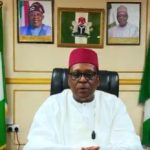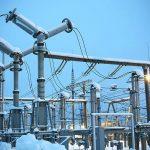The International Monetary Fund (IMF) has sounded a clarion call to the Nigerian government, stressing the urgent need to bolster agricultural inputs to bolster production and alleviate the surging prices of food items.
In its report, IMF Country Report No. 23/94, the global financial institution underscored the critical importance of addressing the drivers of food insecurity and proposed viable solutions.
Join our WhatsApp Channel“The imperative lies in enhancing agriculture inputs to amplify production and mitigate food price inflation,” emphasized the IMF spokesperson. “This necessitates concerted efforts to surmount challenges related to access, quality, and affordability of agricultural inputs.”
READ ALSO: Nigeria’s Foreign Reserves Forecasted To Plummet To $24bn In 2024 , IMF Warns
Highlighting Nigeria’s vast agricultural potential, the report delineated the pressing need to optimize agricultural productivity amidst escalating global food prices. “Despite Nigeria’s agricultural abundance, escalating global food prices continue to impede food security,” noted the IMF report.
Proposing pragmatic remedies, the IMF advocated for a revisit of the e-voucher program aimed at providing subsidized agricultural inputs to farmers. “Efficient implementation of initiatives like the e-voucher scheme coupled with the establishment of specialized processing zones holds promise in bolstering agricultural yields,” remarked the IMF representative.
Moreover, the IMF cautioned against a potential inflationary surge, projecting a grim scenario where inflation could soar to 44 percent. Citing factors such as an inflation-depreciation spiral compounded by climate shocks, the IMF underscored the imperative for stringent monetary policies to avert economic turmoil.
“Inadequate tightening of monetary policies coupled with adverse climate shocks could precipitate a catastrophic inflationary spike, exacerbating economic vulnerabilities,” warned the IMF report.
Echoing similar concerns, the African Development Bank Group (AfDB) also warned of potential civil unrest over rising living costs in several African countries, including Nigeria. The removal of fuel subsidies and ensuing social repercussions have underscored the need for prudent economic policies to mitigate socio-economic tensions.
As Nigeria grapples with the specter of soaring food prices and economic uncertainties, the onus lies on policymakers to enact robust measures to bolster agricultural productivity and stabilize the economy. The imperative for concerted efforts to address food insecurity and mitigate inflationary pressures has never been more urgent.
Emmanuel Ochayi is a journalist. He is a graduate of the University of Lagos, School of first choice and the nations pride. Emmanuel is keen on exploring writing angles in different areas, including Business, climate change, politics, Education, and others.



















Follow Us